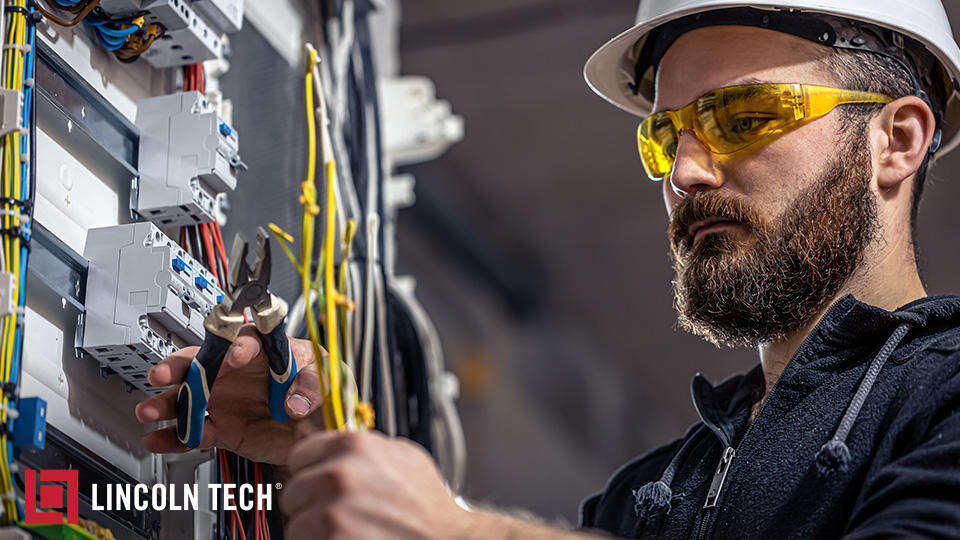What Do Electricians Do? Unveiling Tasks, Skills, and Job Growth

It was in 1893 at the Chicago World’s Fair that the George Westinghouse electrical company’s alternating current system (AC) beat out General Electric’s direct current system (DC) to power the event. From this moment in time, it became more apparent that AC current was less expensive and easier to use to distribute electrical power to major areas. This is how AC eventually became the standard for commercial and household power in the United States1.
The availability of electrical power remained out-of-reach for most Americans well into the 1920s, with only half of the nation’s homes having electricity. Within 10 years after the passage of President Franklin Delano Roosevelt’s Rural Electrification Act of 1936, 4 out of 5 homes in the nation had electrical power2. By the second half of the 20th century, it was assumed that almost all but the most remote residential homes had reliable power.
Electricians Are Essential Workers
As technology continued to advance, our reliance on electricity went from a luxury to an absolute necessity. Every aspect of our lives requires the input of cost-effective, reliable and plentiful electrical power. A power failure that lasts for more than a few hours would be a minor inconvenience for the people who lived only a few generations ago. But today a power outage like that would paralyze businesses, personal communications, home security, medical readiness, banking and a reliable way to refuel vehicles. It should come as no surprise that the skilled electrician, the person who literally maintains and repairs our modern way of life, is an essential worker. Without them, a power outage that lasts more than a day can quickly become a major emergency situation.
Electricians are more than just the workers who are called when the power goes out. They are the skilled technicians who are busy with projects such as rewiring equipment or fixtures, inspecting electrical components for safety, installing wiring and lighting, modernizing the electrical systems of buildings and homes, and troubleshooting electrical problems. They are the technicians who keep the electrical systems of the world operating safely, and when the power goes out, they become truly essentially workers in every sense of the word.
Color Vision is Crucial for an Electrician
A successful electrician must possess specific and important qualities, with the most important being perfect color vision. All wiring is identified by the color of the wire insulation, plus special markings (usually lines) that are often printed onto the wiring insulation. These too have specific colors. The wiring schematic is the key to deciphering which color wires connect to a specific device or power supply. Diagnosing electrical problems requires critical thinking and excellent communication skills. Physical strength is important too, as lifting and moving components and equipment is part of the typical daily tasks.
What Do Electricians Do During A Typical Workday?
- Read technical and wiring instructions, including blueprints & schematics.
- Install systems for control and lighting systems.
- Install and maintain power distribution systems.
- Inspect electrical systems.
- Troubleshoot & repair electrical malfunctions.
- Learn and adhere to state & local regulations based on the national electrical code.
- Train and manage other electrical workers in all aspects of the industry.
Electrician Job Growth
Electricians are experiencing excellent job growth, and will continue to be in demand for the next decade. As of 2022, there were over 762,000 electricians employed industry-wide across the United States, and that number is expected to increase 6% to almost 812,000 electricians by 20323. This is an addition of more than 49,000 additional job openings for Electricians.
Electricians often build rewarding careers because there are always new projects, technologies and regulations to learn. By steadily improving their skills, Electricians become more experienced, which can often lead to increasing pay. If you are interested in learning more about a skilled trade career in the electrical field, please visit our Electrical and Electronics training program at Lincoln Tech. This is an in-depth hands-on training program designed to teach you how to read construction blueprints and wiring schematics, properly install and maintain components and prepare you to enter the field as a new journeyman electrician.
1 The Mr. Electric Company Blog article “The History of Electricity | History of Electricity Timeline”, published on 9/12/2019, and retrieved on 2/8/2024 from https://mrelectric.com/blog/the-history-of-electricity-history-of-electricity-timeline/#:~:text=power%20to%20larger%20areas
2 The Mr. Electric Company Blog article “The History of Electricity | History of Electricity Timeline”, published on 9/12/2019, and retrieved on 2/8/2024 from https://mrelectric.com/blog/the-history-of-electricity-history-of-electricity-timeline#:~:text=rural%20electrification
3 National Center for O*NET Development. National Employment Trends: 47-2111.00 - Electricians. O*NET OnLine. Retrieved February 8, 2024, from https://www.onetonline.org/link/localtrends/47-2111.00
Take the next step
Complete this simple 3-step form to get started. Click "Next" to go to Step 2.
